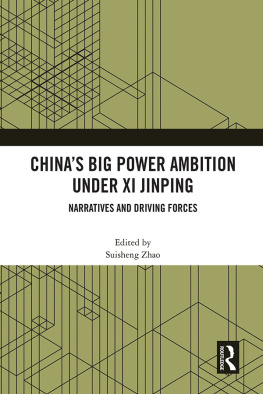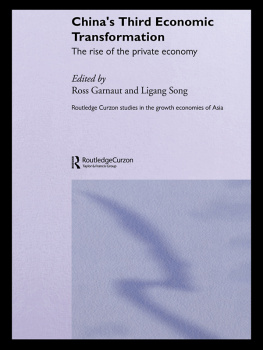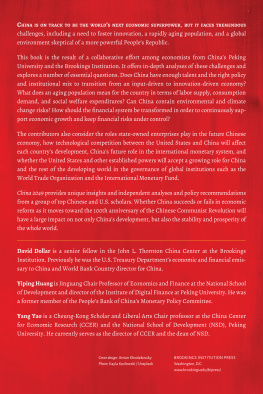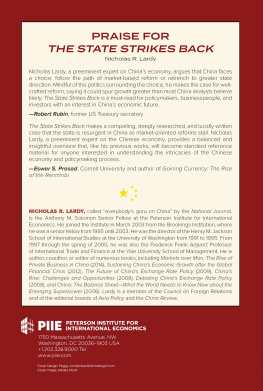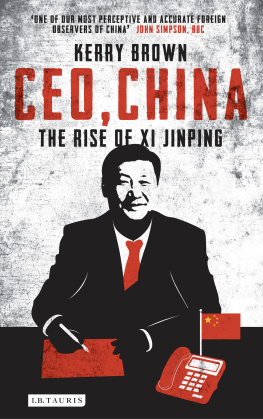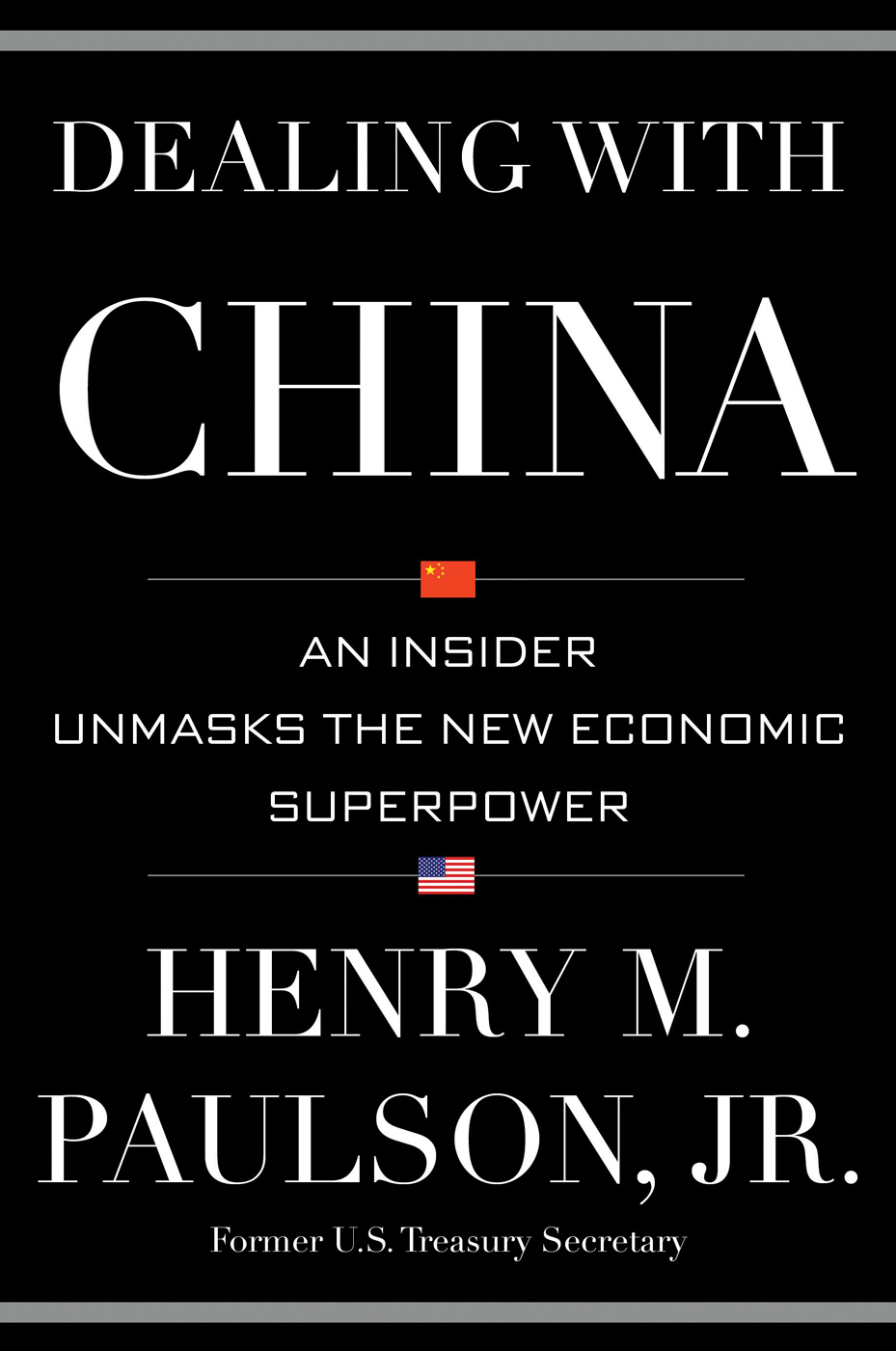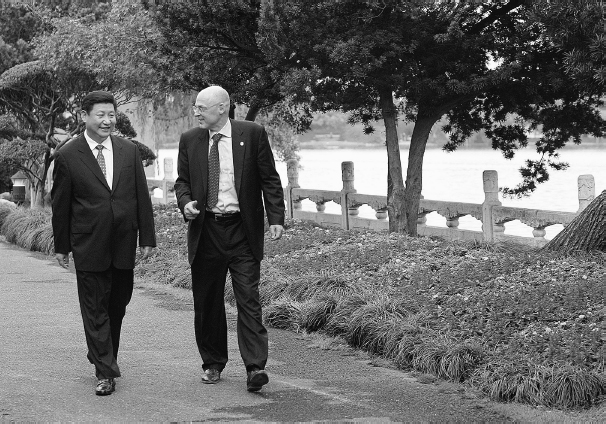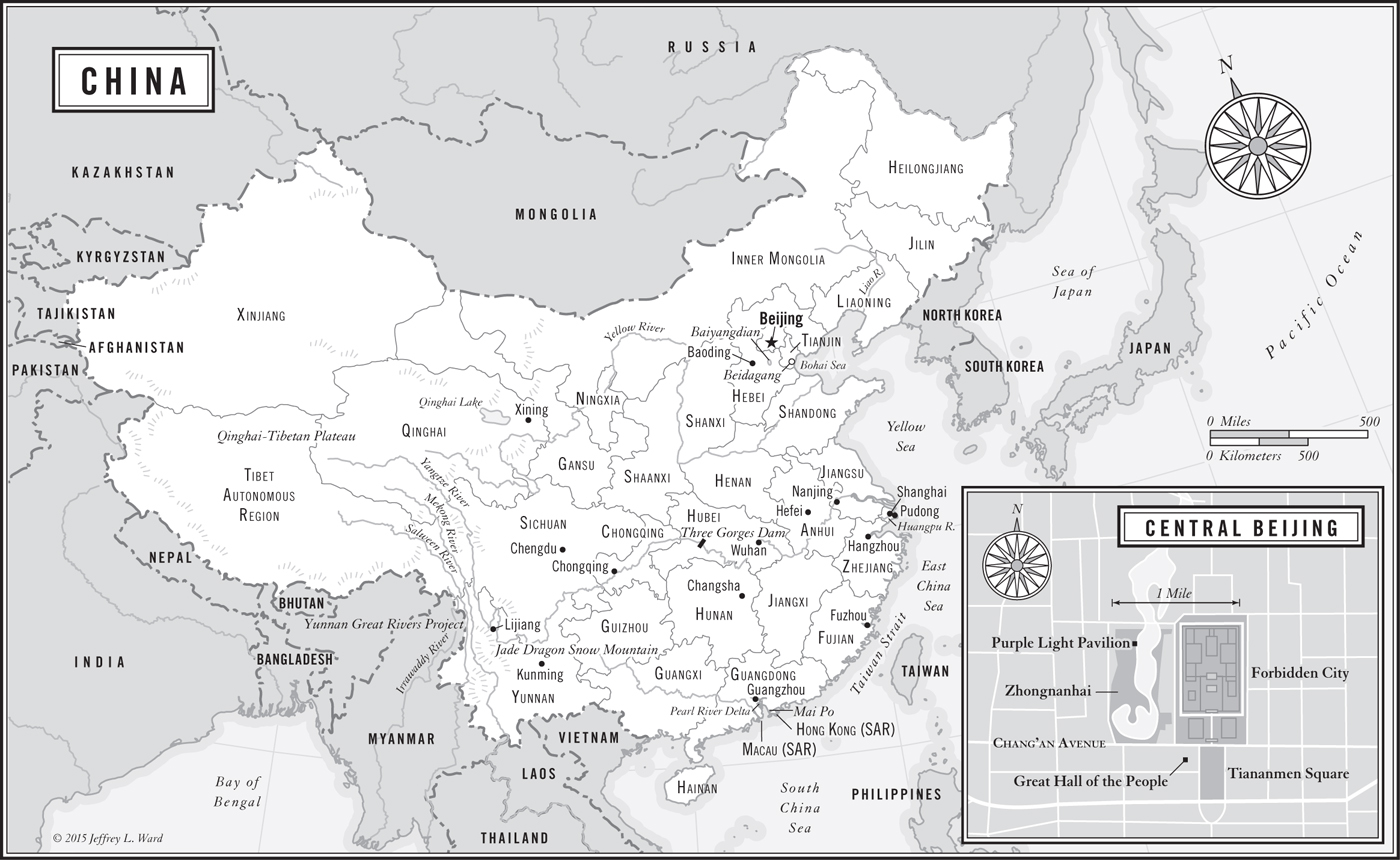Visiting with future president Xi Jinping at Hangzhous famed West Lake State Guest House on my first trip to China as Treasury secretary in September 2006 (AP Photo/Eugene Hoshiko)
Chinas rise to economic superpower surely ranks among the most extraordinary stories in history. In barely three decades, this once backward, insular country has moved hundreds of millions of people out of poverty while turning itself into the worlds second-biggest economy. I can think of no country that has grown so much so quickly. The U.S.s rise to industrial supremacy after the Civil War comes to mind, but the Chinese may have already outstripped our great run, and theyre not done yet. In the not-too-distant future, they are likely to surpass us as the worlds biggest economy, knocking us off a perch weve occupied for nearly 150 years.
Chinas transformation has been as spectacular as it has been swift. Its spanking-new skyscrapers, high-speed rail lines, and space-age airports stand in sharp contrast to our own increasingly creaky infrastructure. One day we read of a Chinese entrepreneurs grandiose plans to spend $50 billion to carve a passage through Nicaragua twice the size of the Panama Canal; the next we learn that a Chinese developer wants to buy a chunk of Iceland; then its a manufacturer turned builder who hopes to erect the worlds tallest building, from prefabricated units, in six months.
Todays China is a land of superlatives. It is home to the worlds fastest supercomputer, the biggest wind-power base, the longest sea bridge. It produces and uses nearly half of the worlds coal, cement, iron ore, and steel; it consumes 40 percent of the aluminum and copper. By one estimate, China will soon account for nearly half of all the new buildings under construction on earth. Forty years ago most Americans wouldnt have imagined owing China one red cent. Now it is the U.S.s biggest creditor, owning just under $1.3 trillion of our governments debt. Its enough to make the head spinor for Americans to wonder how the world got turned upside down so fast.
Lately, however, China has become as much a source of concern as a source of awe. We find ourselves increasingly at cross purposes with an ever more competitive China as it flexes its newfound muscles in world markets and in bitter territorial disputes with its neighbors, while it seeks to challenge the U.S.-led order in Asia and in aspects of the system of global governance that has prevailed since World War II. Its government appears unwilling or unable to prevent the cybertheft of intellectual property from U.S. companies, and it is tightening its grip on Chinese society through an authoritarian, one-party system of government that Americans dont understand and dont like.
Suspicion is a two-way street. Support for positive relations with the United States is waning among Chinese, growing numbers of whom believe that the U.S. and other countries want to impede their countrys ascent.
These developments threaten to undermine a relationship that, over more than four decades, has made substantial contributions to economic growth, job creation, and prosperity in both countries, while enhancing international security, not least by helping to fashion a peaceful end to the Cold War. Now, no shortage of Americans wonder: What do the Chinese really want? Why are they spending so much money on their military? Are they friends or enemies, trading partners or commercial and geopolitical adversaries? In short, how do we deal with China?
This book is my attempt to address these concerns, through stories of my personal experience in working with the Chinese to get things done. Im not a scholar or theorist. I dont read, write, or speak Chinese. Im a businessman who brings a firsthand knowledge of China and its corporate and political leaders. I have gleaned this over more than 100 visits to the country and nearly 25 years of dealing with Chinese officials on commercial matters while at Goldman Sachs, on affairs of state and macroeconomic policy while U.S. secretary of the Treasury, and, nowadays, as head of the Paulson Institute, which promotes sustainable economic growth and a cleaner environment through greater cooperation between the U.S. and China. During that time Ive had the opportunity to work closely with the most senior leaders of the last three administrations in China: Jiang Zemin and Zhu Rongji in the 1990s, Hu Jintao and Wen Jiabao in the early years of this century; and Xi Jinping and Li Keqiang today.
I write as an American who is deeply concerned about our countrys standing in the world, the health of our economy and our environment, and the long-term prospects of our citizens. I take the view that all of these will benefit from active engagement with China, that clear-eyed, constructive cooperation is the best way to advance our national interest. The Chinese are formidable competitors. But we should not fear competition or shrink from it.
Ive held this conviction for a long time. Within weeks of being sworn in as Treasury secretary, I traveled to China to lay the groundwork for a new approach to our most important bilateral relationship. Growth and economic reform were Chinas dominant concerns, and I believed we could leverage our newly conceived Strategic Economic Dialogue to more effectively manage many other pressing matters as well.



